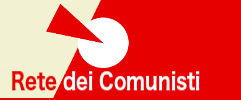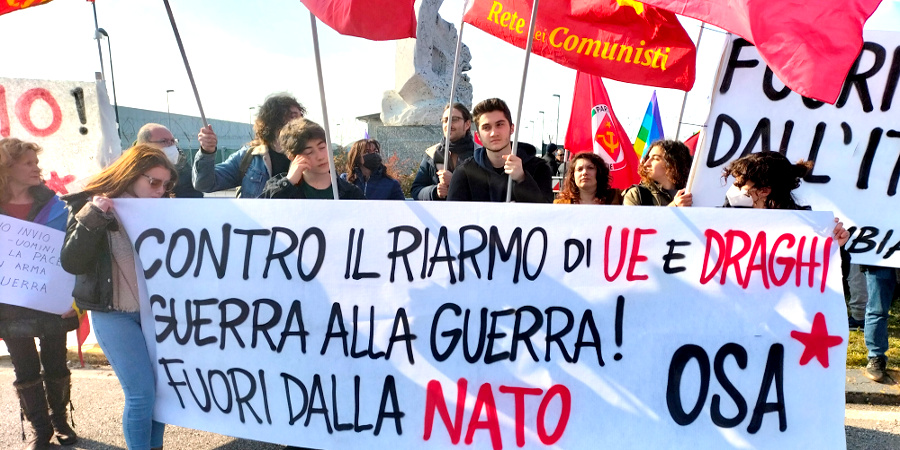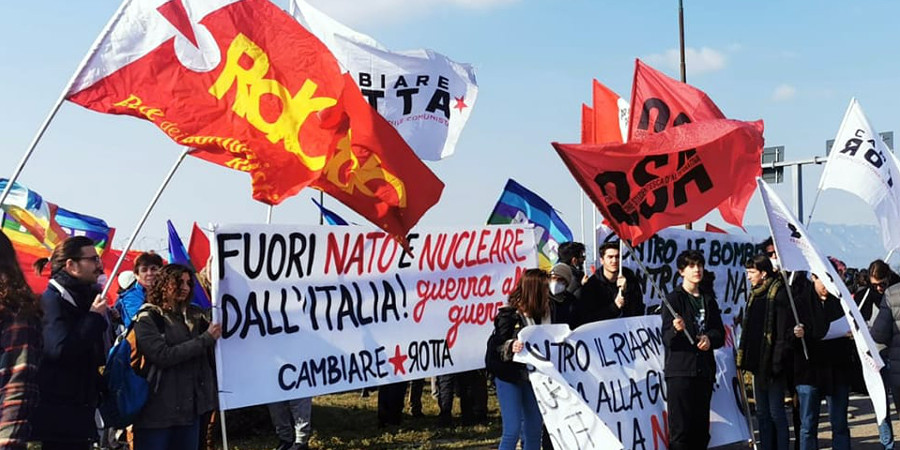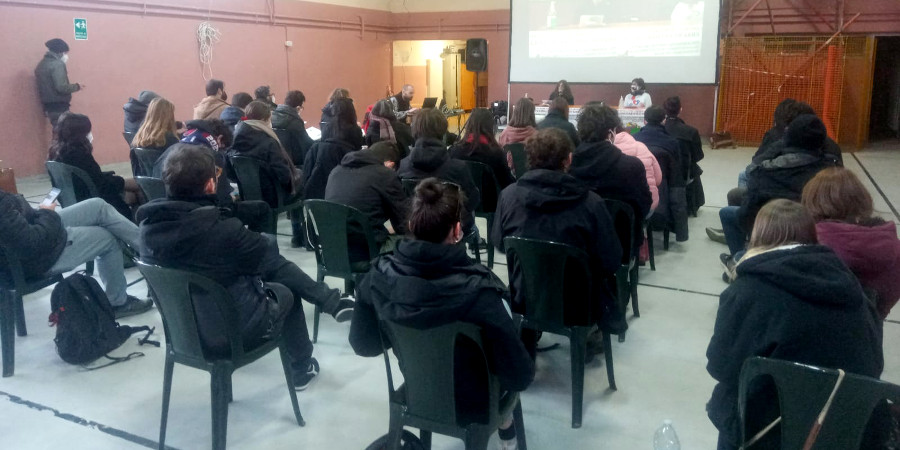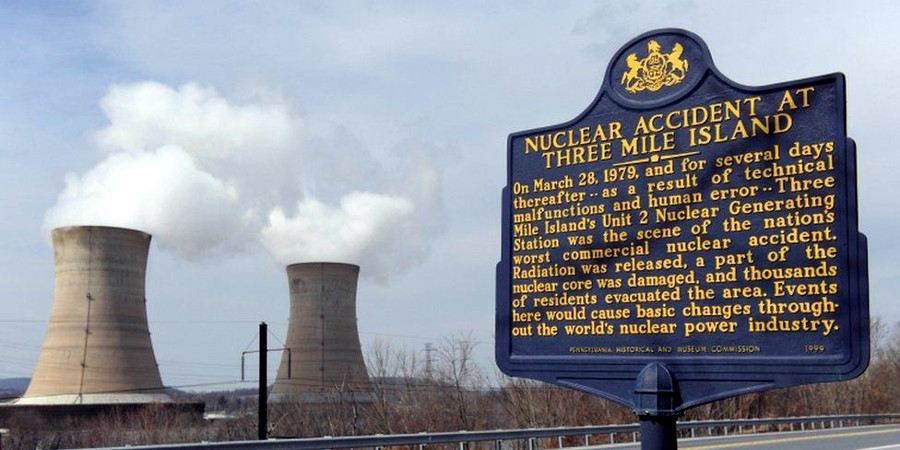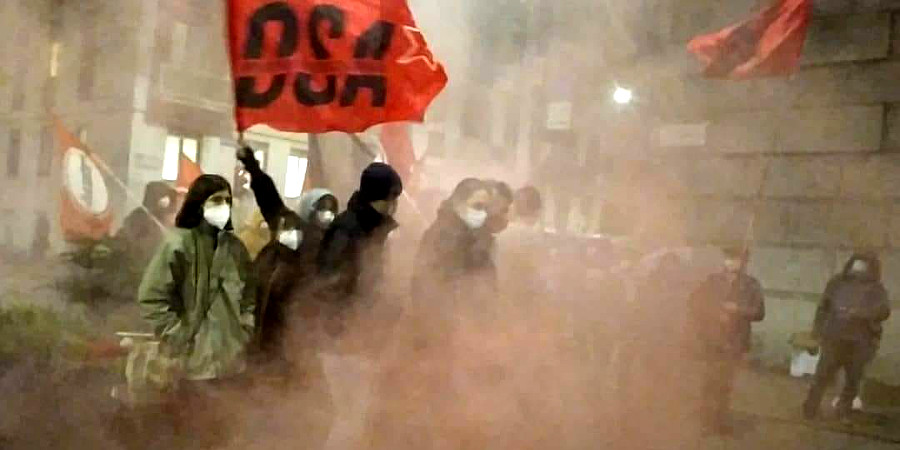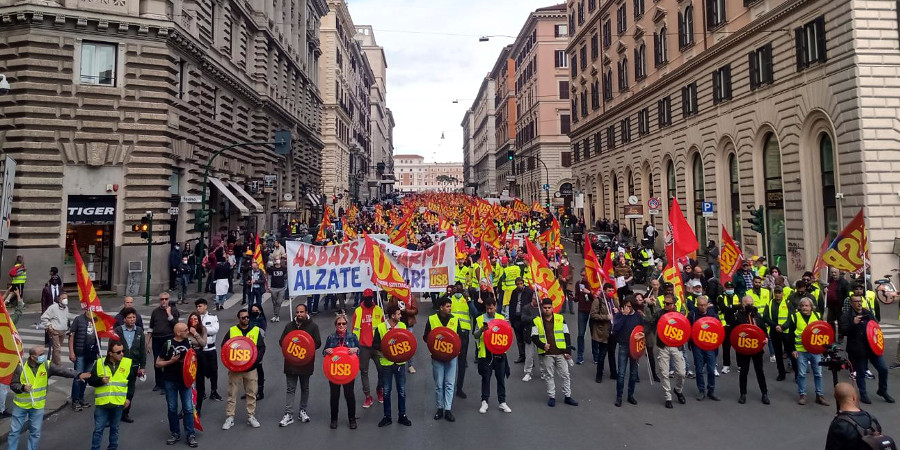| english | español | français | italiano |
The European Union becomes a military power in perspective
Rete dei Comunisti
The approval by the Council of the European Union on Monday 21 March of the document on the “Strategic Compass for Security and Defence” takes the political edifice of the EU to a quantum leap in planning.
Not only does the Union now aspire to become a major global player, but it is also equipping itself with the overall military instruments to implement this plan and the relevant funding methods.
The Strategic Compass, with regard to the change of pace in the ability to channel economic resources, is quite clear in this regard: “spend more and better on defence”, which is entirely in line with the choices to increase the military budget already announced for the respective countries by, among others, the German prime minister and then the French prime minister.
Reading the document, one gets the impression that the warfare state will become a decisive element in the continent’s economic system, and that R&D will focus on the high end of dual-use weapons technology.
The European Union is above all functional to the promotion of the interests of a European oligarchy born out of the more far-sighted fractions of the individual national bourgeoisies that initiated its constitution with the Maastricht Treaty some thirty years ago. This process of construction serves a consolidated continental bourgeoisie that is equipping itself with the necessary tools to deal with this phase of strategic competition, capable of projecting its own interests in open contrast to the spheres of influence that are being defined by other global players.
It is a project that has demonstrated its undeniable resilience and has been able to transform the crises it has gone through into opportunities for a relaunch, filling the gaps that have emerged in its action towards an ever greater degree of verticalisation of its decision-making processes, a more advanced process of economic and financial integration and a more articulated deployment of the instruments at its disposal, last but not least the military one.
The 50 pages of the Strategic Compass certify, after two years of negotiations among the Twenty-Seven, the convergence on a European defence policy, which stems from a common vision of the challenges that will have to be continually updated, approving a new military doctrine that aims to achieve that strategic autonomy in a series of fields related to war requirements.
A strategic autonomy in a complementary relationship with NATO, but with a different weight compared to the one played until now, able to counterbalance the Anglo-American axis in the future.
The Western defeat in Afghanistan, sanctioned by last summer’s daring escape from the Asian country, and the Russian military action in Ukraine have made it no longer possible for the European Union to postpone the completion of its formation as an imperialist pole.
Quoting the document: ‘a new strategic landscape is emerging that requires us to act with a much greater sense of urgency and determination’. In fact, the timeframe of the various objectives listed at the bottom of each section of the Strategic Compass places them as priorities in the binding choices of the political agenda to come and gives a sense of the acceleration of this process already partly underway with PESCO, i.e. Permanent Structured Cooperation.
The EU therefore wants to overcome the “critical capacity gaps” and “strategic dependencies” that undermine its autonomy, and it wants to do so quickly with a broad programme that has 2030 as its ultimate time horizon, and much closer intermediate steps.
The document puts its finger on the role of Russia, its being, so to speak, identified as a sort of global threat to the EU from Eastern Europe to Africa to the Middle East, while China is considered “a cooperation partner, an economic competitor, and a systemic rival”.
In the coming years, the European Union will be endowed with a military profile to match all its functions: from the development of a shared intelligence that elaborates a “common strategic vision”, equipped with unique command and control structures, to a state-of-the-art defence industry, from permanent cooperation between the various branches of the Armed Forces (Navy, Air Force, Army) and relatively new fields of warfare (Space and Cyber Space) of the different countries, to the creation of its own fully operational multinational and inter-force rapid intervention force.
This 5000-strong force, for which Germany – in the words of Defence Minister Christina Lambrecht – has already made itself available to provide the hard core, will start training next year and be effectively operational by 2025.
The ability to set up military missions will be achieved through a decision-making process in which ‘willing member states’ will make use of the ‘constructive abstention’ of those who do not wish to participate without being a de facto obstacle to the implementation of missions. This way, the decision-making processes will not be congested, with a leading group of states (Germany, France, Italy and probably Spain) being surrounded by other “variable geometry” components, thus consolidating war cooperation.
Above all, the EU will increasingly conceive of itself as an actor with a heightened self-awareness in the face of the accelerating process of development of structural contradictions in the development model of which it was the author, and capable of acting from Africa to Asia, passing through the Middle East with a vast range of partners that goes from the African Union to ASEAN, in addition obviously to NATO and the UN.
This continental bloc is already endowed with a certain size that potentially made it a major player in military power, as High Representative for Foreign Policy Josep Borrel recalled on the sidelines of the approval of the Strategic Compass: “The Twenty-Seven spend four times as much as Russia every year and a similar amount as China, but much less efficiently. We need to be more efficient.
“À la guerre come à la guerre” has once again become the motto of a continental bourgeoisie that has put its helmet back on and intends to make the working classes pay for the costs of this castrensian metamorphosis, despite the growing spectre of stagflation.
As Rete dei Comunisti, we have been affirming for a long time the need for our country to break free from the cage of the European Union and leave NATO, as the only chance for the emancipation of the subordinate classes and now more than ever as an obligatory exit strategy from a spiral of war that is feeding itself with increasingly serious consequences. In November last year we dedicated a two-day forum in Bologna to deepen the transformations of the EU: “European Union: from imperialist pole to superstate?”. The results of this reflection work have become a substantial paper issue of Contropiano published this February and which we are preparing to present in various Italian cities, in order to continue a discussion that we consider central and essential.
